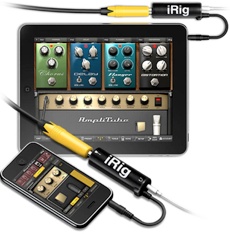Now that Vale is bringing its Steam, Valve’s gaming service, and Source, Valve’s gaming engine, to the Mac, the Mac gaming situation should improve.
Not that it’s been terrible. However, gamers have long complained about the lack of Mac games — at least compared to the bazillion gaming titles for the PeeCee.
Steamworks for the Mac supports all of the Steamworks application programming interfaces, and Valve has added a new feature, called Steam Play, which allows customers who purchase the product for the Mac or Windows to play on the other platform free of charge. For example, Steam Play, in combination with the Steam Cloud, allows a gamer playing on their work PC to go home and pick up playing the same game at the same point on their home Mac.
“The inclusion of WebKit into Steam, and of OpenGL into Source gives us a lot of flexibility in how we move these technologies forward,” Steam development director John Cook told “IT Wire” (http://www.itwire.com/your-it-news/entertainment/37430-valves-steam-set-to-inflate-mac-game-selection?start=1). “We are treating the Mac as a tier-1 platform so all of our future games will release simultaneously on Windows, Mac, and the Xbox 360.”
Games including Counter-Strike, Portal and Team Fortress 2 will be available to run under Mac OS X in April. Valve’s first simultaneous release for Mac and Windows will be Portal 2, expected in time for the Christmas buying season.
So expect to see the Mac gaming market flourish. But don’t expect to see an Apple gaming console as some have expected. Apple gaming will involve Macs, iPhones, iPods and iPads — but not a dedicated game console.
Of course, not everyone agrees with me on this. Wedbush Morgan analyst Michael Pachter thinks that Apple may launch a game console by 2015. He says it’s “natural” that Apple could convince a large number of iPod and iPhone gamers to buy a game-enabled Apple TV, similar to the way it has drawn users to the Mac platform through the iPod.
However, I do want to reiterate a proposal I’ve made before, based on the GameDock concept introduced by Mac|Life (go to http://www.maclife.com/article/feature/future_apple_design?page=0%2C2 for the mock-up).
Heere’s what the fevered minds at “Mac|Life” came up with, based on the success of the iPhone/iPod touch as a gaming platform: “Take this nifty little gaming platform and assign it double duty as both a handheld and a console system. The GameDock accommodates the iPhone and iPod touch and hooks directly to your TV and the Internet. Whether you download a game wirelessly via the handheld or wiredly via the GameDock, you pay just once for two versions of the same title.
“This is where things get interesting. When you download a game straight to your handheld, you can immediately begin playing the touch-controlled version of the game. And it’s glorious! And the next time you seat your handheld in the GameDock, the console immediately sucks down the full, expanded version of the game from the App Store, and stores it in its voluminous hard drive.
“So now you can play the console version of the very same game — with more features, more content, expanded controls, and, thanks to the GameDock’s integrated graphics processor, better visuals.
“And should you first download a game when your handheld is seated in the GameDock, the ‘mini’ version of the game shoots straight into your iPhone or touch, ready to play the next time you disengage from the console and hit the road.
“Of course, the GameDock scheme wouldn’t be quite so interesting if not for its seamless integration of content. For some game titles, the handheld version of the game exists as sort of an autonomous ‘mini game’ — its gameplay model runs independent of the console version’s. But for other titles, the handheld and console versions of the same game work together. Gameplay models obviously differ between the mobile and full versions, but each version hooks into the other in creative, novel, symbiotic ways. And through the power of syncing, your progress in level- and achievement-based games is saved and always propelled forward, regardless of which version you’re playing.”
Pretty clever, huh? But what if, instead, Apple used the GameDock as a way to sell more Macs by offering Mac-only gaming options that tie in with the iPhone and iPod touch? In my scenario (which, I admit, might not be technically possible), Apple wouldn’t enter the console game wars, but would turn the Mac into Wii-like computer gaming system.
Instead of connecting to a TV, the GameDock would connect to a Mac (and perhaps be built into high-end iMacs), allowing Apple computers to run the “bigger” versions of the “mini” games on the iPhone and iPod touch that “Mac|Life”> suggested. The GameDock would also allow multi-touch, accelerometer-equipped game controls (made by Apple, natch) to be used with the Mac games.
This might greatly enhance the “halo effect” of the iPhone, iPod touch and iPad sales on Apple computers. And it would certainly enhance the number of games available for the Mac.
The iPhone/iPod touch + GameDock + Mac = more big bucks for Apple and increased Mac market share.
At least that’s my scenario. What do you think?
— Dennis Sellers



